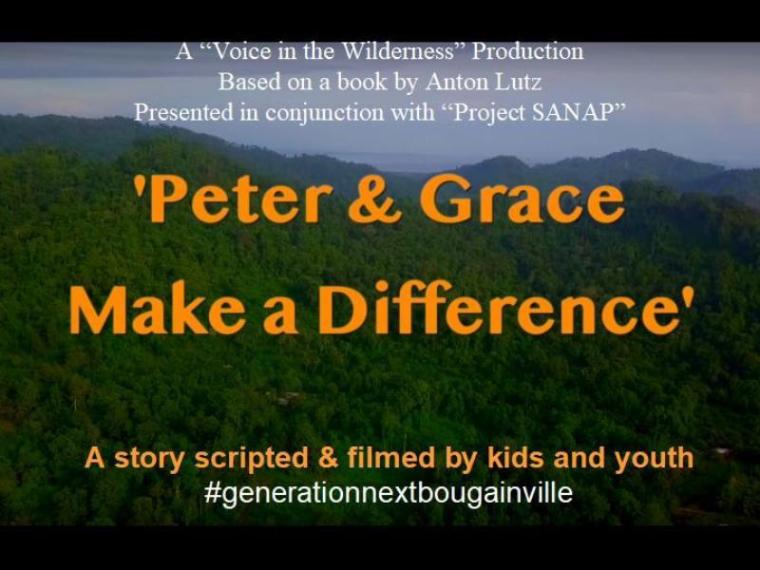
Back in 2018, I wrote an article, “Of Witches and Whales”, observing the strange yet incredible efforts of the humpback whales, who help, rescue, or even get into good ol’ fisticuffs to defend, any animal they come across that is being hurt or attacked.
I had just returned from three years in Papua New Guinea, where (mostly) women were being blamed for common illnesses such as measles or flu, accused of being witches, and brutally tortured to death.
Like many, I was deeply troubled by the surge of sorcery-related violence around me.
Some of my friends were frontline combatants – chatting and laughing with me over dinner one night, then the next day unexpectedly getting up close and personal with the crazed mobs. Arguing for hours with closed villagers to let an innocent life go, and sometimes even physically standing in the midst of the danger to slow or halt gruesome events.
One morning found me rushing around my house, grabbing towels, blankets, water and food to send off with a rescue crew who had made a quick pit stop in my safe, gated compound. There, just outside my front door, their dirt-streaked vehicle was humming throatily, preparing to drive several hours across ridiculously bad roads to the nearest mission hospital.
Inside the car, cowering in torn clothing and with her sobbing mother beside her, was a horrendously injured young woman. She had been raped with steel poles, beaten and pummelled and kicked, torched with coal-hot machetes, and was now left fighting for her life.
Why? Because on her way home from getting groceries for her mother, she inadvertently walked past a stranger’s funeral.
Her gender and anonymity, plus the wild and unfounded rumours of witchcraft that are running rampant in PNG, made her an immediate target for blame. She found herself dragged into the most horrific of nightmares, all for the crime of being female and walking home in quiet innocence.
And now here she was, outside my back door, bleeding and broken, traumatized into mute fear.
She was just a few years younger than me.
She could have been me.
The only difference between us was my stack of privileges:
White. Employed. Born in a first-world country.
I was free to visit a sick child without being blamed for their illness. I was free to plant vegetables without being accused of cursing my neighbour’s wilting crops.
I was free to go to the market without worrying about being dragged off to be tortured and burned as a witch because a child I walked past later fell out of a tree and broke his arm.
Then and now, I feel terribly helpless in the face of such rampant violence and needless suffering. There are heroes for sure, roaming the mountains of PNG, but they are under-resourced, often outright opposed by ignorance and greed, and far too few in numbers.
And writing back then about the deep compassion of humpback whales, I wondered where the whales were for PNG.
Who will rise up from the deep and defend the innocent?
Who will bring education and enlightenment to minds still trapped in the Dark Ages?
Who will speak for the young woman who trembled in the car outside my house that day, only to die the next day in excruciating pain from unimaginable injuries?
I didn’t expect the first wave of “whales” to be a group of kids off the coast of PNG.
Yet here they are.
Because just this month, on Bouganville Island in Papua New Guinea, a mismatched conglomeration of children and teens have risen up as humpback whales for their nation.
Inspired by a storybook written by Anton Lutz, and led by their intrepid leader, Llane Munau, the young people have just released their first ever film:
I dare you to take one hour and watch it.
This movie – filmed long before Covid-19 became yet another hazard in their world – was scripted by the children themselves.
The characters and scenes were set up carefully and acted enthusiastically, despite no one having any training in acting and film. They had only a few tech tools, and the most basic of sets and props which they set up or made themselves.
Half of them don’t own shoes, their classroom is empty of computers, resource cupboards and books, and desks are shared as precious commodity.
The irony is that these kids would call themselves privileged.
They have almost nothing materially, but they have passion and purpose. And they dug deep into that. With a few adults to help them, and the injustice of their country’s pain burning in their young hearts, they nurtured their own talent and built their own means.
The result is revolutionary on a number of levels.
Because these kids are more than just a youth group playing around with a camera. They are the uprising of the Hunger Games. They are the Divergents of the post-apocalyptic factions.
They are the humpback whales of Papua New Guinea.
“Peter and Grace Make a Difference” is a low-budget, high-quality movie, literally made by a bunch of barefoot kids.
They have almost none of the equipment, paraphernalia and money that we would expect before we’d do the same.
They hang out under coconut trees, wear mismatched clothes their mothers found in cheap thrift stores, and entertain themselves with no toys in their jungle backyard. They have almost nothing compared to the average Kiwi kid, but they went out and made a kick-ass social justice movie anyway.
And they did it in the midst of what we would call “circumstantial poverty”.
Because they don’t care about their privilege or lack thereof. They’re making a difference regardless.
And if a group of disadvantaged kids on a tiny island nation can make something this powerful, then surely we can use our very real privilege to make a difference too.
When was the last time you took your privilege – be it race, gender, wealth, health or simple good fortune – and used it to do something good?
Bring about something positive? Intentionally make a difference?
I’m not saying you should dive into Papua New Guinea’s tragic attacks and murders. Or start raising awareness and campaigning with human rights defenders. Or contacting local representatives or raising funds for the actual people on the front lines.
(But hey, if you do feel this tugging on your heart, check out the links below, share these stories, even get in touch with SNAP directly).
I AM saying it’s time to ask yourself this question:
What am I doing with MY privilege?
LEARN MORE:
Peter and Grace Make a Difference
Check your privilege – why it’s not a bad thing
Fighting to save the women of PNG
Why is PNG still hunting witches?
Sorcery-related violence surges in PNG
Sorcery National Action Plan (PNG)
Of Witches and Whales and When Women Crucify Women
(Emma’s previous articles about the sorcery accusations and related killings in PNG)

Emma is an Italian-South African with a New Zealand passport and an international heart. She spent years training student choirs and co-running a puppeteering business, before working for a humanitarian organisation in New Zealand (7 years) and Papua New Guinea (3 years). Currently a nomad living between various countries and towns, Emma's deep joy is in writing, music, cooking up an Italian storm, and taking time to listen to people’s stories.
Read Emma's creative expressions at http://www.girlkaleidoscope.wordpress.com or https://pngponderings.wordpress.com/2016/09/02/finding-the-beauty/
Emma’s previous articles may be viewed at www.pressserviceinternational.org/emma-mcgeorge.html